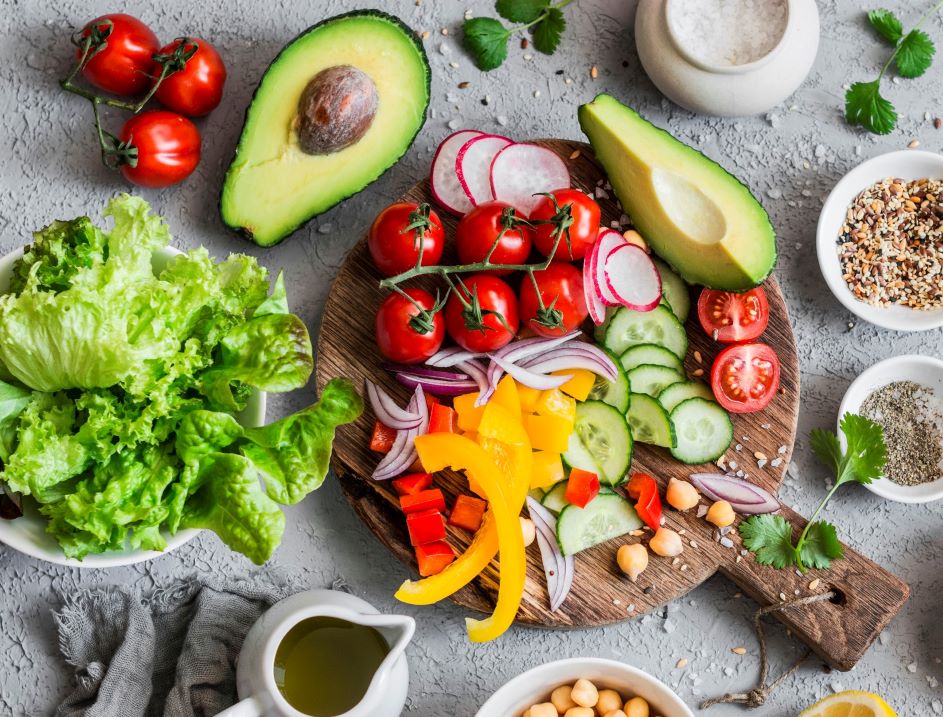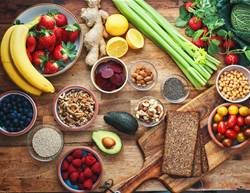When planning your next meal, you’re probably thinking of delicious flavours and satisfying ingredients – all the stuff that might hit the sweet spot of what you’re craving. But did you know that behind the scenes, there are scientists and food technologists working hard to improve the nutritional value of the foods we eat every day?
What is food science/food technology?
Food science, also known as food technology, is the study of the physical, chemical and biological properties of different foodstuffs, and how these properties can be used to create safe, nutritious and appealing foods. This field of study has come a long way in recent years, and the impact it has on our daily lives is significant.
How can it benefit you?
Food science can benefit us by:
- Helping to improve the nutritional quality of our foods. By studying the components of foods and how they interact, scientists can create products that are higher in essential vitamins and minerals, while also reducing harmful ingredients like sodium and trans fats.
- Developing new plant varieties that are more resistant to pests, diseases and environmental stresses. For example, scientists have developed tomato varieties that are more resistant to diseases and can be grown in a wider range of environments. Having a larger supply of healthy produce can also result in lower price points for end consumers as these foods are more abundant.
- Food science can also unlock the nutritional value of fruits and vegetables to enhance and fortify foods and some supplements to make it easier to fill any nutritional gaps. Antioxidants, vitamins, and other beneficial compounds can be extracted and added to boost the nutritional quality of foods and supplements to provide more convenient ways to reach your recommended daily intake of nutrients.
Who uses food science?
Almost every product in your local supermarket has used food science: from pesticides and fertilisers used to grow fresh produce, to cholesterol-lowering sandwich spreads that harness plant sterols to block the absorption of cholesterol in the small intestine. Food science has also played a crucial role in the surging market demand for plant-based eating and supplements.
Research has shown that a plant-based diet has numerous health benefits, including reduced risk of chronic diseases such as heart disease, diabetes, and certain cancers. As a result, many consumers are turning to plant-based eating and supplements as a way to improve their overall health and wellbeing.
By utilising food technology to create innovative plant-based products, food manufacturers are making it easier for consumers to incorporate plant-based foods and supplements into their diets.
Simon Hill, Head of the Scientific Advisory Board of the wellness company eimele, has embraced the potential of food technology in developing their range of products that include ingredients with scientifically proven benefits. “Our goal at eimele is to make healthy eating easy and accessible for everyone,” says Hill. “We use the latest food technology to create supplements from real, whole foods, making it easier for people to get the nutrients they need, even if they don't have access to fresh foods.”
For example, eimele have extracted and compressed phytonutrients found in plants into a convenient water-soluble format to make it more convenient to boost your nutrient intake with their Shine Greens supplement. This daily greens formula supports a healthy immune system by providing plant-based fibre and pre- and probiotics, which are proven to be beneficial to our gut bacteria.
Excitingly for coffee fans, eimele have also developed a coffee blend enhanced with essential vitamins, including B vitamins and vitamin D, as well as biotin - all ingredients have been scientifically proven to support the maintenance of healthy hair, skin and nails; and are also linked to supporting metabolism. Made from a blend of Arabica Robusta beans, the Metabolism Plus Coffee also includes quality ingredients such as turmeric and ginseng, which gives an extra boost to every sip.



Our food supply chain has been enhanced through food science, from advances in fertilizers on fresh products, to refridgeration to reduce spoilage.
A plant-based diet has many health benefits, including reduced risk of chronic diseases such as heart disease, diabetes, and certain cancers. Getting the right balance of nutrients from our food can be tricky, so many people are turning to supplementation to help them fill their nutritional gaps.
Food science has allowed nutrients from plants to be extracted to boost foods and supplements. eimele's Shine Greens formula has compressed plant-based nutrients into a water-soluble format to make nutrient delivery more convenient.
Coffee with extra benefits? Yes please! eimele's Metabolism Plus coffee blend has been fortified with vitamins and minerals to support overall health with every cup.
How can I check health claims on products are legitimate?
To check the legitimacy of health claims on supermarket foods in Australia, start by looking for the Health Star Rating (HSR) on the packaging, or look for certifications such as the Heart Foundation Tick or those from the Therapeutic Goods Administration (TGA) for fortified foods, to ensure the product meets certain nutritional criteria and safety standards. Hill also suggests researching claims online by looking for a PMID#, which is a unique number that PubMed (a library for peer-reviewed papers) assigns research studies. If you don’t find a reference that links to what’s in the product or how it’s made, you would be right to be sceptical.
Embrace the science for better health
Food science is a game changer in the world of nutrition. It improves the quality of our food through innovative technologies and the creation of enriched foods, and could solve future problems of food security. And while our goal should always be to eat a balanced plant-based diet, embracing the innovation of food science could help us get closer to meeting our nutritional needs in an easy, convenient way. You might even get a little extra beneficial boost from your daily brew!
At Prevention, we only collaborate with trusted brands. To bring you this article we have partnered with eimele. For more information about their products visit eimele.com










